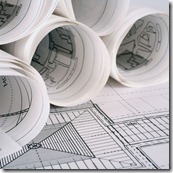 My husband and I are in the planning stages of renovating our living quarters, including the downstairs bath, kitchen and living room.
My husband and I are in the planning stages of renovating our living quarters, including the downstairs bath, kitchen and living room.
It dawned on me as we began our plans: 30 years ago, homes were designed for a person of average height who has perfect eyesight and hearing, can walk from one room to another with ease and has no trouble getting up or down.
Considering the cost of remodels, my husband and I are hoping that our renovations will last us 20 years and maybe more.
But once we age another 20 years and reach 75 (which seems young and spry), it’s not inconceivable that we may have physical limitations, especially when it comes to bending, stooping, stretching or reaching.
Upon close inspection, our house is stylish and well-maintained, but it is a bit of an obstacle course.
For example, the upper cupboard in the kitchen that holds frying pans and platters requires us to open the refrigerator doors to reach the contents.
Additionally, when the kitchen pantry door is open, it blocks the entry to the kitchen, and when we try to use the trash compactor, the switch is not near enough to the sink.
In the bathroom, a wheelchair wouldn’t go through the door and even a standard shower chair wouldn’t fit in the stall. The toilet is too low for friends with bad knees to get up from comfortably.
Our living room has inconveniences, too. There is a step down from the entryway into the living room, which seems fine until you consider it was only a few years ago that I tripped there and broke my shoulder in two places.
That brought back a lot of unhappy memories of how our house doesn’t provide enough accommodations for people with physical limitations.
So our first order of business is to incorporate elements of Universal Design into our remodeling plan, in essence making our home usable at any life stage.
UD emphasizes better accessibility for users, making the home more efficient, comfortable, safe and enjoyable for anyone at any age.
But asking for UD isn’t always easy. I felt a bit silly when I told the bath appliance salesman I didn’t want the luxurious deep soak tub because I was afraid I wouldn’t be able to get in and out of it as I got older, and also when I told the kitchen appliance salesman I didn’t want the high-end, 36-inch stoves because the oven door would become too heavy for me to open.
June was National Home Safety Month, but it’s not too late to emphasize how important home safety can be.
According to studies, falls are the leading cause of serious and fatal injuries among people age 65 and older. One-third of people over the age of 65 who live in their own home fall each year, and the incidence increases to 50 percent for those over age 80.
The majority of falls among seniors occur in and around the home.
Research has shown that improving home safety by focusing on the environment and a homeowner’s physical limitations reduces the chances of falls.
Many of us plan to stay in our own homes as long as possible, but residences frequently lack supportive features such as wide doorways and accessible storage areas, and they often have numerous fall hazards. Altering our home environment can make our homes more efficient, comfortable, safe and enjoyable.
According to the Society of Certified Senior Advisors, seniors say their stairs, hallways, bathrooms and kitchens are among the most difficult areas in the house to navigate.
Neither my husband nor I want to struggle with getting around our own home as we get older. Our planning now will hopefully give us an edge on handling our limitations as we age.
The safer our home, the less likely we are to have an accident or fall, and the more likely we are to feel safe and secure, and thrive in our home environment.
With the right planning, we are looking forward to a beautiful, safe and functional home for many years to come.




